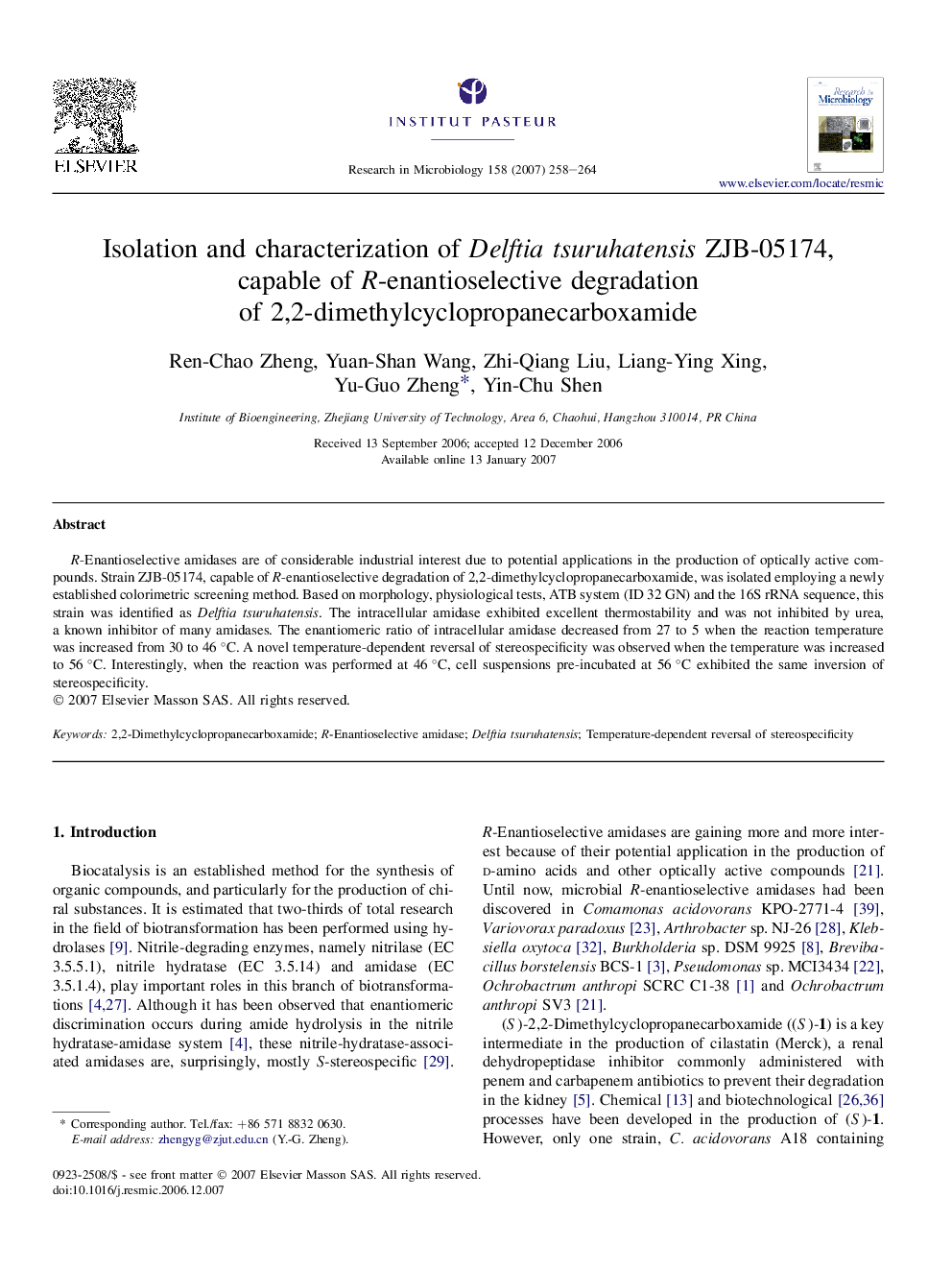| Article ID | Journal | Published Year | Pages | File Type |
|---|---|---|---|---|
| 4359293 | Research in Microbiology | 2007 | 7 Pages |
R-Enantioselective amidases are of considerable industrial interest due to potential applications in the production of optically active compounds. Strain ZJB-05174, capable of R-enantioselective degradation of 2,2-dimethylcyclopropanecarboxamide, was isolated employing a newly established colorimetric screening method. Based on morphology, physiological tests, ATB system (ID 32 GN) and the 16S rRNA sequence, this strain was identified as Delftia tsuruhatensis. The intracellular amidase exhibited excellent thermostability and was not inhibited by urea, a known inhibitor of many amidases. The enantiomeric ratio of intracellular amidase decreased from 27 to 5 when the reaction temperature was increased from 30 to 46 °C. A novel temperature-dependent reversal of stereospecificity was observed when the temperature was increased to 56 °C. Interestingly, when the reaction was performed at 46 °C, cell suspensions pre-incubated at 56 °C exhibited the same inversion of stereospecificity.
